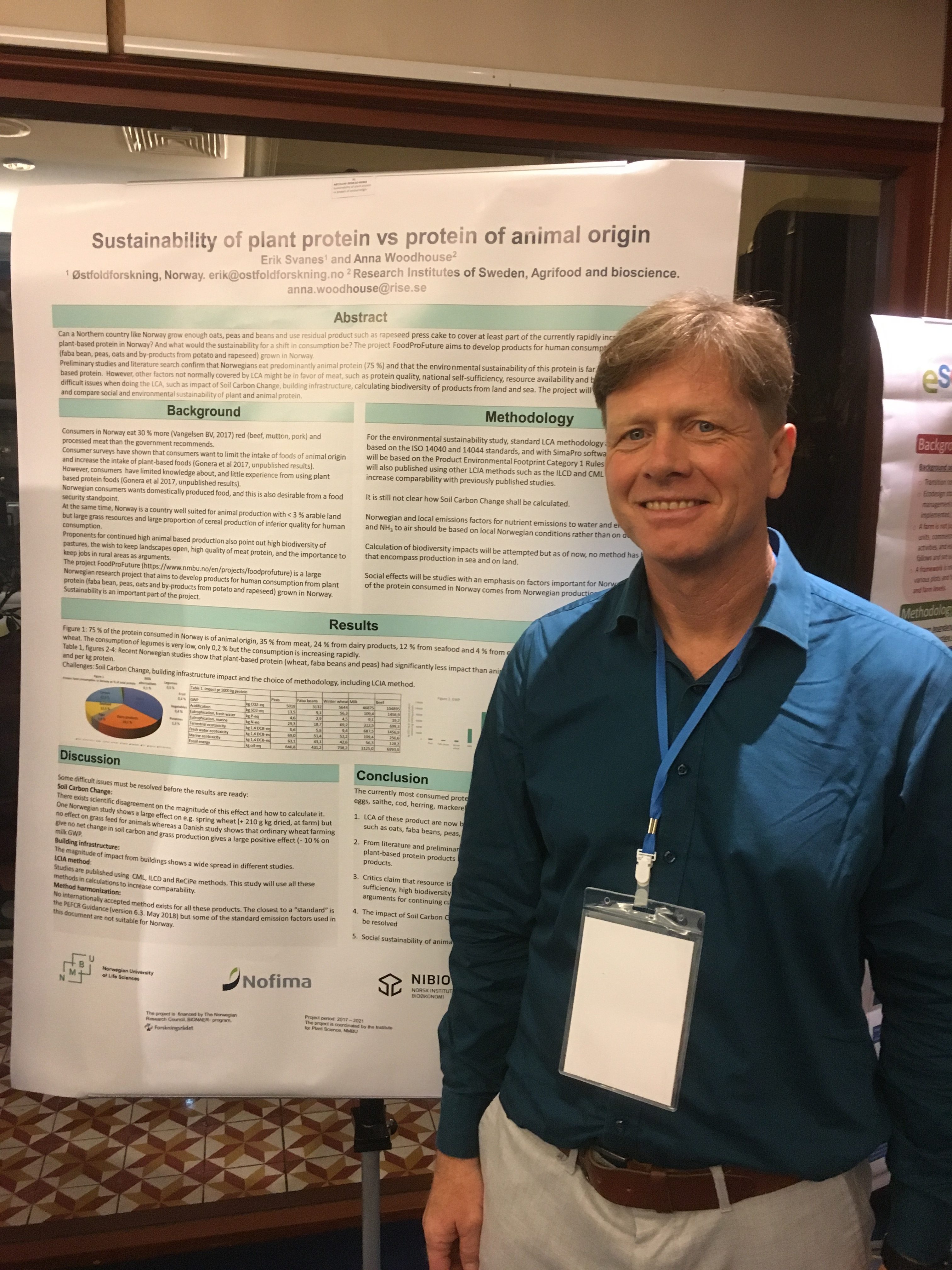FoodProFuture at LCA Foods 2018 in Bangkok

The 11th International Conference on Life Cycle Assessment of Food (LCA Foods 2018) was held in Bangkok, Thailand October 17-20th 2018. This conference is being held every second year and is a focal point for scientists, industry, governments and other parties interested in food and the environment as it is the only conference that covers LCA and all foods.
Erik Svanes from WP1 of FoodProFuture presented results in a poster. Several participants expressed interest in this work. There is no debate in the scientific community that plant protein is environmentally much better than animal based protein. However, it is also clear that two topics partially closes the gap between these products, 1) Soil Carbon Loss favours product grazing animals and 2) protein quality favours all animal products vs plant products. The conference was titled “global food challenges towards sustainable consumption and production”.
The LCA community is developing towards an even more holistic approach by expanding the number of topics covered (e.g. biodiversity and animal welfare), integrate nutrition/health and environmental impacts, interactions between economy and environment and giving results on both macro and micro scale that can be directly used to inform politics and give consumers guidance.
One of the focus areas was development towards fulfilling the UN Sustainable Development Goals (SDGs). Presentations showed that LCA researchers need to take these SDGs more into account in their work and also ways that LCA can be used to help attain the SDGs in developing countries. Another important topic was the balancing of nutrition and environmental impact. This can be done by treating nutrition, and ultimately health, as an impact alongside climate impacts and others. Alternatively it can be done by including nutrition in the functional unit of the LCA, e.g. state results as impact pr kg protein instead of pr kg product.
The development of LCA methodology is rapid, and studies were presented on quantification of animal welfare, SOC (mentioned above), nutrition metrics, data quality and availability, water use, land use, food waste, packaging and logistics. LCA databases (used when specific data are not available) was another hot topic, especially for production in developing countries. Research show that the continued usage of database data from the “western world”, even though adapted, can lead to misleading results. A presentation of the “Beyond Burger” based on pea protein was especially interesting for our project.
